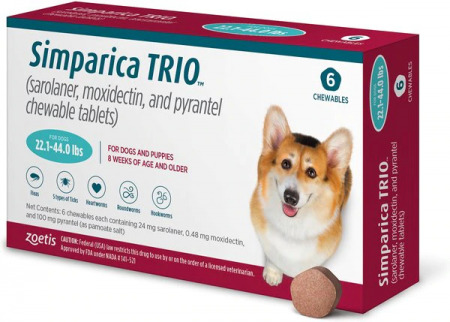Summer is the season of family vacations and relaxation, but if you’re not careful, it can be downright dangerous. No, I’m not talking about heat stroke or monkeypox!
Along with your usual routine of protecting yourself and your family from heat and viruses, you also need to be protecting your pets from fleas and ticks.
Why You Should Care About Fleas and Ticks
A bite from a flea or tick is a roll of the dice. Sure, you could be totally fine with just a little skin irritation around the bite area, or you could be one of the lucky winners that ends up with Lyme’s disease, Spotted Fever, or the plague (yes, really, that plague).
Some flea- and tick-borne illnesses are easily treatable, while others will have lifelong effects. Thankfully, you won’t have to worry about any of those outcomes if you take preventative measures. Dogs and outdoor cats are prime targets for fleas and ticks because their fur makes it easy for them to pick up tiny insect hitchhikers that can jump to your clothing and furniture. If you live in temperate climates in North America and Europe, your pets are at an especially high risk.
Veterinarian-Recommended Preventatives
All pesticides in the U.S., including those prescribed to animals, are cleared for use around humans by the EPA. But just how much your pet needs and how it is applied can vary a lot between the different products. When in doubt, call your vet, and ask them which products they recommend.
Oral Medication
The most effective long-term protection against fleas and ticks are oral tablets that require a vet’s prescription. Your vet will decide what to prescribe based on your pet’s weight, as well as other factors such as fur thickness and how much time the pet spends outside.
Personally, I’m a fan of my dog’s monthly treatment (Simparica TRIO) that is flea/tick prevention and heartworm preventative all-in-one. That means fewer pills for me to keep track of for her!
Other kinds of flea/tick medications only require 4 pills a year (like Bravecto), if that fits your schedule better.
Topical Medication
If you prefer a more direct method of killing fleas and ticks, you can pick up topical medications at your local pet supplies store. These can include liquid treatments that need to be applied throughout the pet’s fur, or a special collar (like Soresto) that gradually releases the pesticide.
Although these products are highly effective, the topical pesticide can be transferred to your hands and requires vigilance to make sure that small children are not exposed to large amounts of the product. You’ll also need to make sure that your dog isn’t exposed to cat medication and visa versa. What works for one pet may be toxic to the other!
What To Do If You Find Fleas or Ticks
Visual Exams
Even once your pets have preventative medications from the vet, it’s still a good idea to check through their fur after spending extended periods of time outside. This is especially important if you are fostering a stray pet who has been solely outdoors.
A flea comb can help you separate the fur to check for red, irritated skin and tiny brownish fleas. Fleas and ticks both like to settle into furry crevices like the neck, groin, and under leg areas, so be extra thorough when checking your pet’s ‘ears and rears,’ as you’ve probably heard your vet say!
Flea & Tick Shampoos
If you do find ticks on your pet, a topical treatment followed by a flea/tick shampoo bath can help get rid of the infestation. Thick-furred strays that are carrying a lot of fleas may require several weekly treatments and shampoos before the insect population is completely cleared. Follow the directions on your vet’s recommended product, being careful to avoid your pet’s eyes and mouth.
Some of these shampoos kill fleas and other small insects your pet may already be carrying, but they don’t provide long-term protection. For the best protection, pair flea & tick shampoos with the preventative medication prescribed by your vet.

What is the best flea shampoo for dogs and cats that you’ve found? Or do you have better luck with topicals or collars? Let us know in the comments below!
Keep Reading For More Ways To Protect and Spoil Your Pets:



